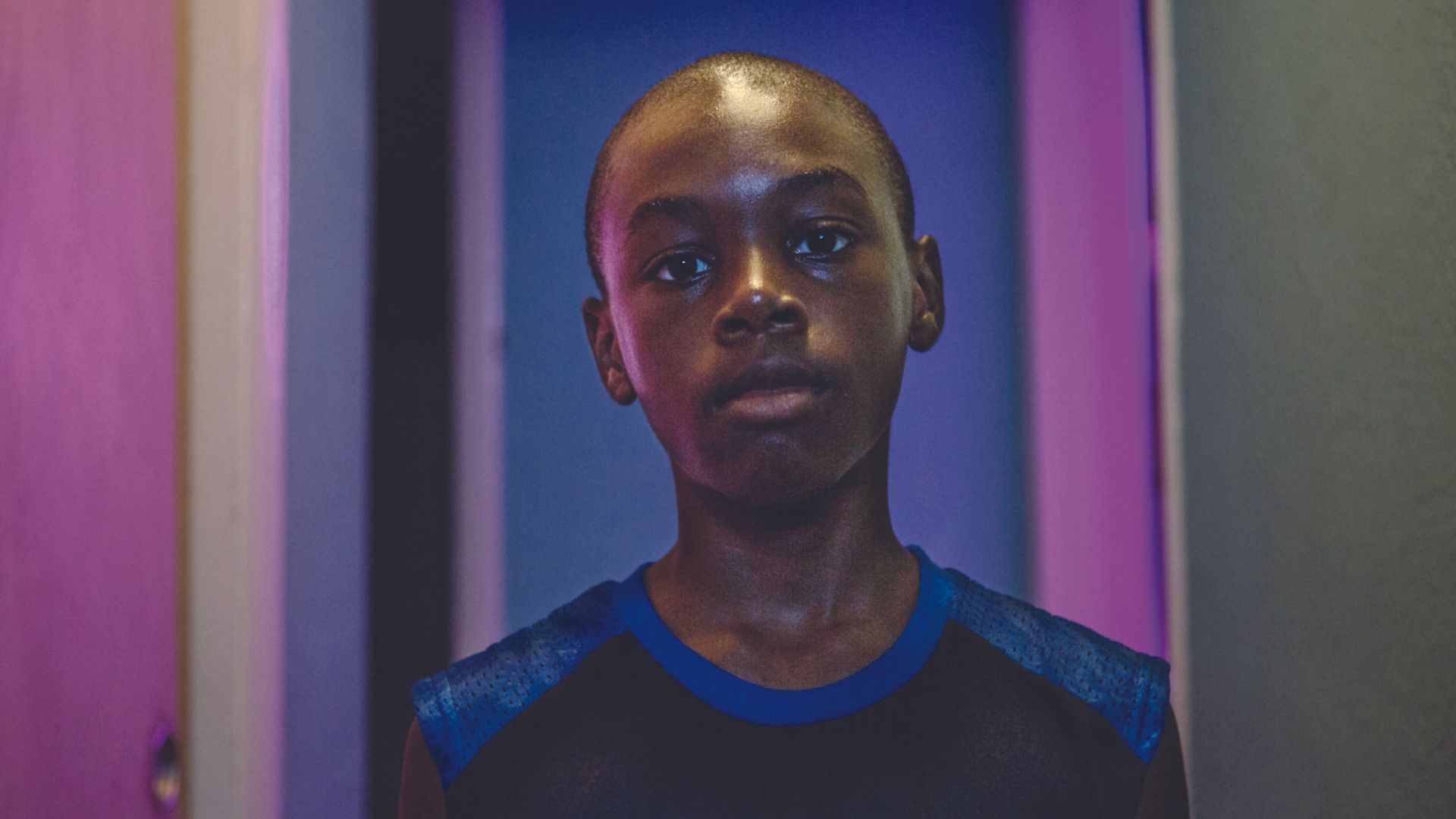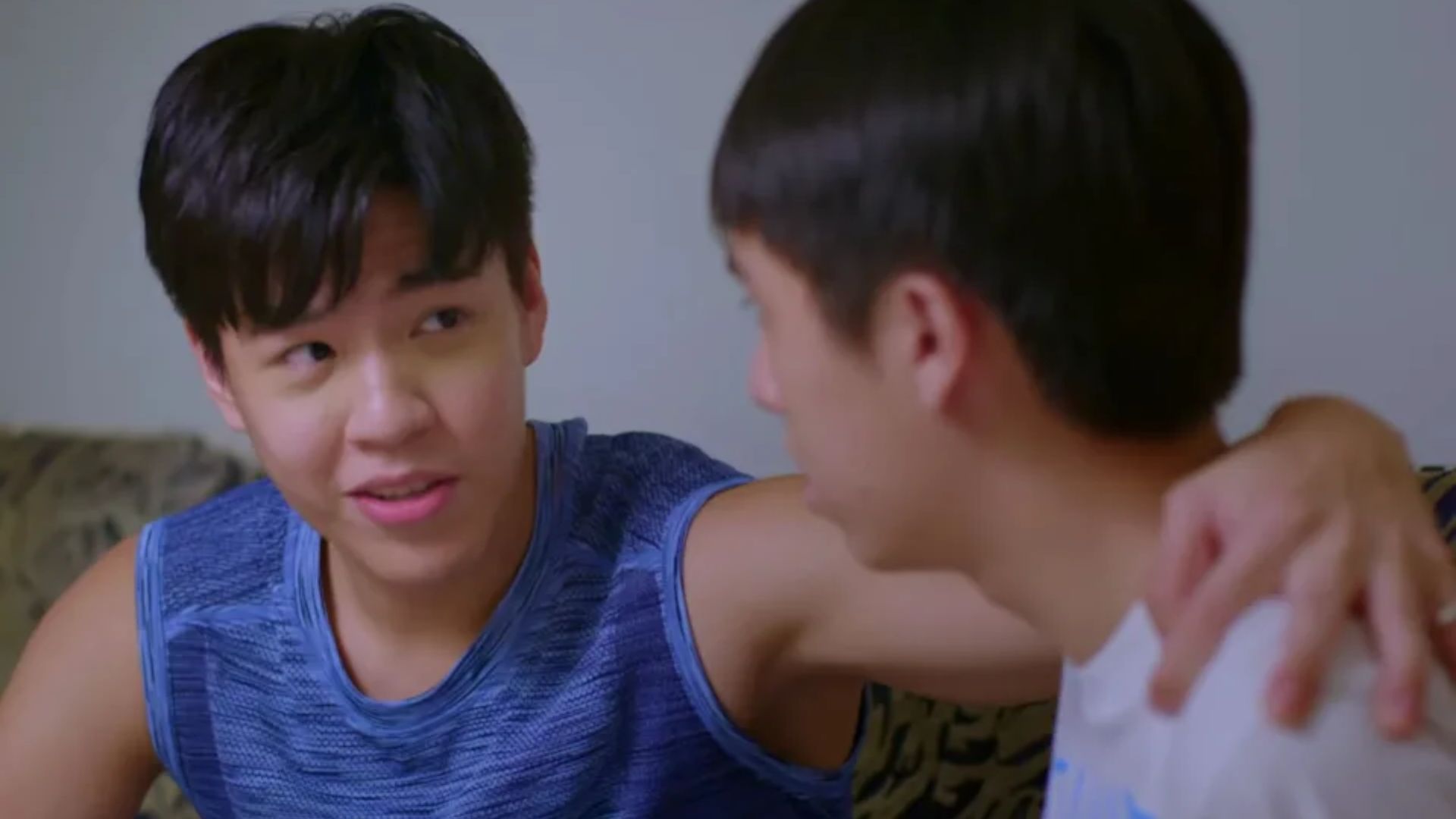According to LGBTQ+ media advocacy group GLAAD, queer representation on US television has hit a record high in 2022, with nearly 12 per cent of regular characters portrayed as LGBTQ+, up from 2.8 per cent in 2021.
Lived experiences are complex and it is sometimes a challenge to capture diversity in its entirety, which makes media representation a nuanced subject. But the rise of critically acclaimed queer television shows like Euphoria — which has become a worldwide sensation — attests to the promising progress mainstream Western media has made, as it ventures beyond portraying queer characters as mere caricatures or villains. From Dan Levy in Schitt’s Creek to Eric Effiong in Sex Education, the LGBTQ+ community has begun to see their identities represented and celebrated on screen through increasingly fluid, compelling, and affirming stories.

The social impact of compelling stories
Gender theorist and American philosopher Judith Butler surmised that the concept of heteronormativity is underpinned by socio-cultural conditioning, especially through visual culture that oppresses queer visibility.
Media, particularly in the form of film and television, has served as a central storytelling platform for decades. Stories help us make sense of the human experience in all of its complexity, through captivating emotions and inspiring memory and imagination. By urging for reflection upon the world through exploring the past, present, and future, powerful stories can culminate in social change.
“If the situation of the homosexual is ever to be understood by the public, it will be because of the breakthrough made by this humane, moving picture,” TIME’s film review declared in 1970.
The aforementioned picture was The Boys in the Band, which opened on 17 March 1970, as one of the earliest American movies to feature gay central characters. Released prior to the gay liberation movement of the 1970s, the film was “unflinching and candid” in illustrating the grim reality of living in New York City as a gay man at the time.
Gay audiences were troubled by the possibility of the “self-loathing and dysfunctional” portrayals of the characters perpetuating harmful stereotypes about the community, but the film was still considered responsible for introducing a pivotal shift in Hollywood’s gay representation.
For decades before that, homosexuality was absent from the big screen entirely, apart from a few side characters that slipped past the censorship of the 1930 Media Production Code — the law, which ceased to be enforced by 1968, prohibited the depiction of “sex perversion”. In The Boys in the Band, gay desire and identity were explicitly shown for the first time. By raising gay visibility, it also informed the public of the social and psychological consequences of homophobic oppression inflicted on gay individuals.
While likeable, same-sex relationships, intimacy, and public displays of affection generally remained taboo in mainstream Hollywood films, until Ang Lee’s 2005 movie Brokeback Mountain. As one of the first major motion pictures to feature a love story revolving around two gay leading characters, the film set a benchmark for modern gay cinema and provided a new mainstream outlook of homosexuality on film and in society.

The “mirrors and windows” of media representation
The term “mirrors and windows” was first coined by educator Emily Styles in 1988 to illustrate the ideal classroom curriculum. In 1990, renowned children’s literature researcher Rudine Sims Bishop wrote about “windows, mirrors, and sliding doors” to describe the diversity — or lack thereof — found in children’s books. According to Bishop, a window is a resource that offers the reader insight into someone else’s reality, a mirror reflects their own identity and validates their experiences, while a sliding door refers to how they can walk into a story and become enveloped in its universe. This approach allows teachers to use stories to help children discover their own place in the world, while spotlighting diversity and empathy.
The same idea can be applied to media representation for the LGBTQ+ community and other minority groups, including racial, ethnic, and religious minorities. “Window” movies or television shows provide a view into the lives and experiences of those who live on the margins, with which the wider public may be unfamiliar. Ideally, LGBTQ+ stories depict compelling, multi-faceted portrayals of queer individuals — countering entrenched stereotypes and sexuality and gender-based intolerance, thereby helping to destigmatise queer existence.
GLAAD and P&G’s 2020 “LGBTQ+ Inclusion in Advertising & Media” report emphasised the impact of media representation on cultural acceptance: It showed that the majority of Americans are not only comfortable seeing LGBTQ+ individuals in media and ads, but look more favourably upon brands who are inclusive.
Stories reflect our experiences back at us and allow us to see our individual existence as part of the larger human experience; we often seek our “mirrors” in narratives as a means of self-affirmation. “Mirror” stories allow LGBTQ+ individuals to see themselves represented and seek comfort in the knowledge that they do not stand alone in their struggles. Conversely, the lack of proper representation frequently breeds hostile environments that discriminate against the queer community.
The want of inclusive representation has enduring effects on the self-conception of those who are marginalised: When people fail to find themselves reflected in mainstream media, or when the images presented are distorted or negative, they feel devalued and outcast by the society of which they are a part.

LGBTQ+ censorship and Singapore’s free-to-air media
In Singapore, where Section 377A of the Penal Code continues to outlaw sexual relationships between men, movies and TV shows that depict queer characters or same-sex romances usually receive at least an M18 rating, or are even classified as R21 depending on the kind of content shown.
The most recent movie to have received a restricted audience is the Disney-Pixar animated film Lightyear. The decision to include a same-sex kiss earned it an NC16 rating from the Infocomm Media Development Authority (IMDA). IMDA, which regulates Singapore’s media sector, characterised the kiss as an “overt homosexual depiction”. IMDA had requested for Disney to consider releasing the film in two versions, under its Simultaneous Rating Release (SRS) mechanism, which would allow film-goers to view separate, age-appropriate versions of the film. However, Disney rejected the consideration.
By putting legally enforceable guidelines in place, the IMDA uses a multi-pronged approach to “classify almost all LGBTQ+ representation into non-existence, even on the country’s free-to-air TV channels and subscription television: Guidelines state that films which “depict alternative sexualities, such as homosexuality, should be sensitive to community values”, and that they will be denied classification for promoting homosexuality.
A content code for free-to-air radio services lists LGBTQ+ content alongside “paedophilia and incest”, indicating that programmes referring to such “lifestyles” should be treated with utmost caution. “Their treatment should not in any way promote, justify, or encourage such lifestyles,” it states.
Yet on 8 February 2022, during a live broadcast of the Winter Olympics opening ceremony in Beijing on Channel News Asia (CNA), two men burst into view of the camera and shared a passionate kiss. The clip was edited out in a later version of the report on its website. However, the kiss had already gone viral on social media.
Co-founder of LGBTQ+ rights organisation Sayoni Jean Chong told The Guardian: “Singapore is considered a developed country, but we are really backwards when it comes to LGBTQ+ rights.” According to activists, the clip — and the ensuing uproar it has incited among Singaporeans — goes to show how outdated Singapore’s laws are. Speeches by renowned figures have also been censored in adherence to broadcasting guidelines, including one made by Barack Obama in his 2016 appearance on the Ellen DeGeneres Show, where he endorsed the host — who openly identifies as lesbian — as a role model.
In an episode of Channel 8’s My Guardian Angels broadcast on 29 June 2020, a gay character was depicted as an STD-positive paedophile. The family drama, starring Zoe Tay and Kym Ng, had actor Chase Tan play the paedophile coach who was eventually jailed for molesting teenage boys. This tremendously damaging portrayal incited massive backlash from the LGBTQ+ community in Singapore, as it further stigmatises and perpetuates harmful stereotypes about gay individuals.

To Tan, an aspiring actor, “every opportunity given to me is precious” and probably had to follow the directions given by the producer.
In an Instagram post, apologised, saying that he had been “deeply saddened that the role I played has caused distress in the community and I’d like to emphasise that it was never my intention”.
“I do not mean to disrespect anyone in the process. Over the years, I have had the pleasure of working alongside very talented and professional LGBTQ individuals. … I sincerely apologise and I will continuously strive to do better,” he wrote.
Action For Aids, a non-governmental organisation dedicated to fighting AIDS/HIV, condemned the portrayal through a statement dated 8 July that year. It said, “To our knowledge, there is no evidence that homosexual males have a greater propensity to offend against children than heterosexual males.
“The portrayal of gay men as paedophiles further perpetuates falsehoods that create further suffering among an already marginalised and stigmatised population.” It also added that STDs can affect anyone and is “not confined to any gender identity, sexual orientation or behaviour”.
Mediacorp apologised for the controversial character on 14 July 2020, saying it had “no intention to disrespect or discriminate against the LGBTQ+ community in the drama” and the storyline was meant to “encourage young people to be aware of potential dangers and not be afraid to speak up and protect themselves”.
According to co-founder of the LGBTQ+ youth support group Young Out Here Benjamin Xue, Singapore’s outdated censorship laws are ineffective at controlling the younger generation’s media consumption, who are often turning to YouTube and online streaming services like Netflix. However, the gap between online media and local television — whose key audiences comprise older generations — might contribute to a widening chasm on moral issues along age lines. “Their parents, their grandparents, and the rest of society are not viewing the same lens,” Xue says.
Furthermore, as Western pop culture boasts more queer representation, Singapore’s LGBTQ+ censorship also becomes increasingly unsustainable.
When Star Wars: The Rise Of Skywalkers (TROS) opened in Singapore in 2019, it was revealed that Disney had censored a shot of a same-sex kiss between two minor characters for its screening in Singapore. Hollywood giant and cinematic powerhouse Marvel studios — a subsidiary of Disney — has declared its commitment to more inclusive and diverse representation in the upcoming phase of its internationally sensational movies. With that, Singapore’s LGBTQ+ censorship policies will come head to head with increasingly inclusive international content.

Light at the end of the tunnel
In contrast to the West, Southeast Asia is still collectively conservative in its promotion of civil liberties. According to OutRight Action International, there remains a great deal to be done to “decriminalise sodomy, enact anti-discrimination legislation, address structural causes of disenfranchisement, and better educate the public on the need for equality and respect for fundamental human rights”.
Despite that, Boys’ Love (BL) dramas have become the primary form of gay media representation in Asia, which have grown increasingly popular in Taiwan, Thailand, and more recently, South Korea. In May 2022, Singapore’s first ever Singaporean-made BL web drama series Getaway was released on YouTube.
The director was Mr Sean Foo, creator of leading LGBTQ+ publication Dear Straight People, whose goal was to tell a story that would encapsulate the gay experience in Southeast Asia.
“Section 377A and the continued prohibition of positive LGBTQ+ media representation on mainstream media means that a large portion of Singaporeans continue to subscribe to outdated, negative perceptions of the community,” he says. “This makes it very difficult for LGBTQ+ creators such as myself to reach them with our content.”
“The ‘don’t ask, don’t tell’ policy is a very common phenomenon in Asian households that isn’t often discussed in the public realm. When an LGBTQ+ person comes out to their family, one of the most common reactions is to never talk about it. This creates a wall of sorts between the child and their parents, which often strains their relationship in a way that is not very salient. This is something I hope to explore in Season 2 of Getaway, if I get the opportunity to produce it,” he adds.
Mr Clement Tan, a spokesperson for Pink Dot SG, emphasises that state-sanctioned storytelling continues to entrench LGBTQ+ discrimination in insidious and pervasive ways. “People’s values are shaped by what they see in the world. If their only exposure to the LGBTQ+ community in our mainstream media are regressive portrayals of paedophiles, perverts, or the mentally ill, then that is the impression they will have of us.”
“Symbolically, this kind of censorship also erases LGBTQ+ people from national narratives, and deepens the sense of alienation that they feel. LGBTQ+ Singaporeans are starved of positive role models and depictions of healthy, loving relationships that can be sources of inspiration and hope,” Mr Tan says.
“The stories that we tell about ourselves are important,” he concludes. “We cannot see one another as fellow humans if we simply do not exist as such in your imagination.”
RELATED: Respect for all: Every LGBTQ student matters, or do they?
Join the conversations on TheHomeGround Asia’s Facebook and Instagram, and get the latest updates via Telegram.














